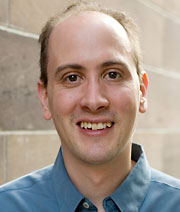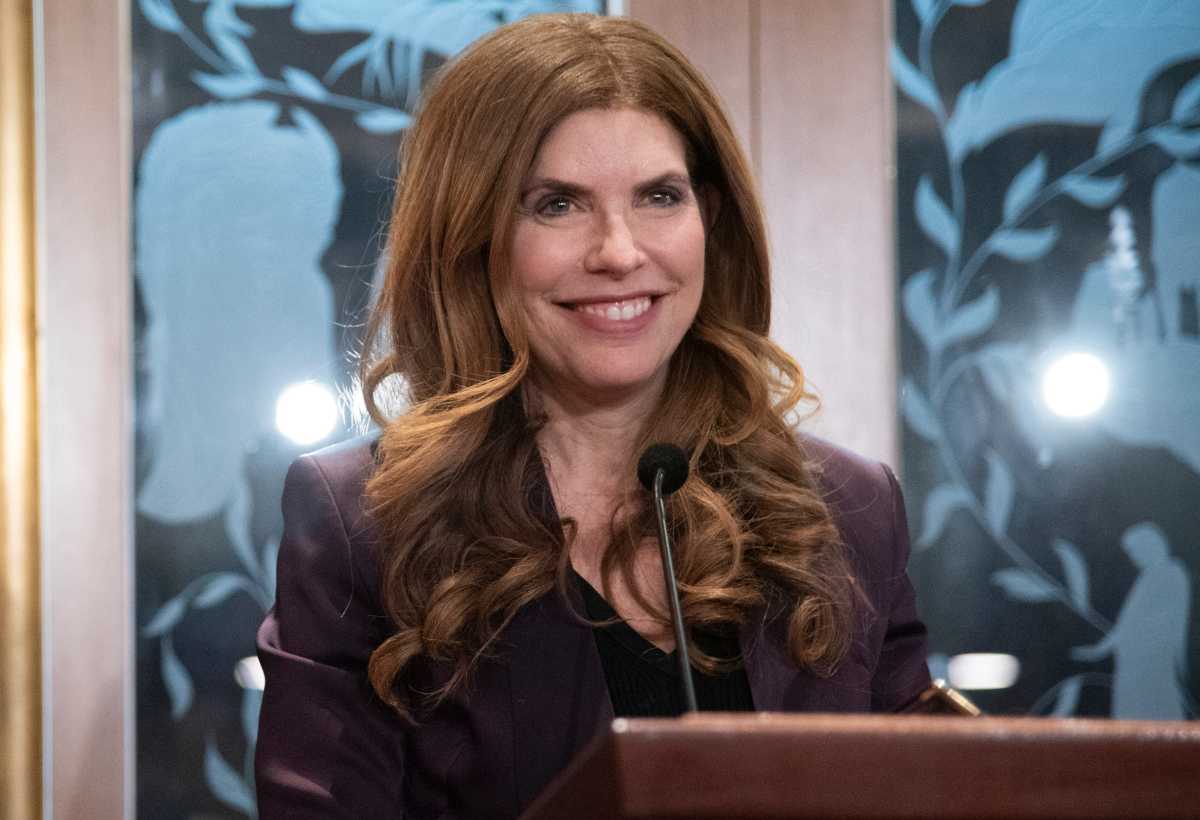Windsor Terrace writer Daniel Radosh is a good Jew — so in a sense, he was the perfect person to write “Rapture Ready! Adventures in the Parallel Universe of Christian Pop Culture” (Scribner).
Being a liberal by nature gave him the open mind to really explore whether Christian rock music, for example, was any worse than the stuff we New Yorkers hear on the radio every day. And being a noted journalist — Radosh has had stints at The Week and written for The New Yorker, the New York Times, Esquire and GQ — gave him the objectivity to explore the vast world beyond the Old Testament.
On the eve of the April 8 publication date and an April 17 reading at the Park Slope Barnes & Noble, Radosh checked in with Editor Gersh Kuntzman.
Q: You weren’t just a fish out of water by being Jewish, but also being a New Yorker. At one point, in fact, a supposedly good Christian hears that you’re from New York and says, I hope joking, “Get a rope!” Did being such an outsider to Christian culture make it harder or easier to write the book?
A: I was an outsider, but people were very open. American culture does get into their bubble, so they were all intrigued to meet a New Yorker. They felt like they had seen New Yorkers on “Seinfeld” and wanted to see if it was real.
Q: For me, your book was like a Dale Earnhardt moment. Remember when he died in 2001, the New York Times was roundly criticized for basically ignoring the death of this NASCAR legend. But his death was a huge thing to millions of Americans. Your book was the same way for me — this notion that something is happening outside our mainstream that has far more consumers than we’re even aware of. I don’t even know what the “Left Behind” books are, for instance.
A: In the book, I used the terms “mainstream culture” and “Christian culture,” but I did it reluctantly because in a lot of ways, Christian culture is mainstream. The “Left Behind” books sold 65 million and “The Purpose-Driven Life” sold 25 million copies. This is a world that’s extremely important to a vast number of Americans, yet it is off so many people’s radar.
Q: Some Christian culture is quite hip (like “Modest is hottest” T-shirts), but some is quite regressive and scary, like the Passion play in which you performed. That was one of my favorite parts of the book. Did you really try to have your character save Jesus’s life?
A: They gave me a set of robes (I had to bring my own sandals) and I found myself in the angry mob calling for Jesus’s crucifixion, a scene that has been used as a justification for the hatred and oppression of my people for centuries. It was tough to take, so while everyone was demanding crucifixion, I broke with the crowd of Jews and said, “Maybe a flogging is enough.” I did my best. I hung my head in shame. I really hammed it up. Of course, no one in the audience could hear me, because all the dialogue is pre-recorded. But I felt I had sent a message!
Q: Like that Passion play, you said you found other elements of Christian culture “repugnant.”
A: The “Left Behind” books are a good example. They take a modern scenario and lay on a radical right wing agenda — yet make it sound fun and exciting for Christians. It’s very divisive for the country, and, worse, it’s a distortion of what many Christians believe. The vast majority believes abortion is fundamentally wrong, but most are not obsessed with this issue. They don’t think it’s the core of their identity. That is what is changing in the next generation and the reason that we on the outside should be paying attention. If you notice what kids listen to at festivals or the magazines young Christians are reading, you’ll find that many are opposed to Jesus being hijacked by conservatives for a political agenda. The look at the Religious Right and think, “That’s not me.”
Q: Is that why you recently defended the position, “Christian rock doesn’t suck” at a debate? How could you do that?
A: The better bands are more open minded. The problem is that the gatekeepers at the radio stations, who tend to be more conservative, only play songs with high “Jesus per minute” counts. But non-Christians should give this stuff a chance. It would strengthen this part of Christian culture and help the conservative fundamentalist strain to wither away.
Q: You hope.
A: We live in hope. Didn’t you read the book?
























